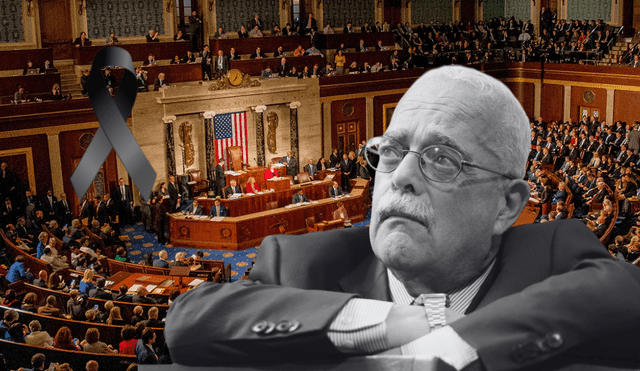Gerry Connolly dies at 75: Longtime Virginia congressman and federal workforce advocate
Gerry Connolly, a Democratic representative from Virginia known for protecting federal employees and shaping Northern Virginia’s growth, passed away at his Fairfax County home on May 21.

Representative Gerry Connolly, who played a pivotal role in transforming Northern Virginia into a hub for technology and infrastructure, died on May 21 at his home in Fairfax County. He was 75 years old. His staff director, Jamie Smith, confirmed the cause of death. Connolly had publicly shared his diagnosis of esophageal cancer in November 2024, shortly after securing his ninth term in the U.S. House of Representatives.
Before his election to Congress in 2008, Connolly served as chair of the Fairfax County Board of Supervisors, where he pushed for development policies that helped attract major corporations to the region. His efforts were instrumental in the expansion of Metrorail’s Silver Line and in shifting the political landscape of Northern Virginia into a solidly Democratic stronghold. On Capitol Hill, Connolly became known for championing federal employees’ rights and advancing government IT modernization.
Champion of federal workforce and IT reform
In Congress, Connolly co-sponsored the 2014 Federal Information Technology Acquisition Reform Act (FITARA), the first major legislation to overhaul federal IT management in decades. The act improved service delivery across government agencies, including the Social Security Administration and the Department of Veterans Affairs, and enhanced cybersecurity for critical systems. He later developed the FITARA Scorecard to measure federal agencies’ progress and co-founded the IT Modernization Caucus to address ongoing challenges in government technology.
Connolly also focused on telework and labor protections. He was the lead sponsor of the 2010 Telework Improvements Act, promoting remote work opportunities for federal employees. During the Trump administration, he strongly opposed executive orders that curtailed federal workers' bargaining rights and sought to reclassify thousands of civil service roles under “Schedule F,” a move Connolly worked to block through legislation. His advocacy on these issues elevated his profile as a staunch defender of the federal workforce.

Gerry Connolly's family releases statements on X following his death. Photo: Gerry Connelly - X
National impact and oversight leadership
As a senior member of the House Oversight and Accountability Committee, Connolly played a key role in high-profile investigations and oversight of the executive branch. He was active in efforts to block the Trump administration from adding a citizenship question to the 2020 Census and led inquiries into misconduct by top administration officials. He was later elected ranking Democrat on the Oversight Committee in late 2024, defeating a generational challenge and receiving backing from House leaders.
Connolly also had a long-standing role on the House Foreign Affairs Committee. He was an advocate for human rights and U.S. accountability abroad, speaking out against autocratic regimes and co-authoring measures on international military action. In 2013, he supported a limited airstrike resolution in Syria alongside Rep. Chris Van Hollen after chemical weapons were used by the Assad regime, though the measure was not enacted.
Local roots and early career in public service
Gerald Edward “Gerry” Connolly was born in Boston in 1950 and was active in Democratic politics from a young age. After abandoning his initial path toward priesthood, he earned a degree in literature and later a master’s in public administration from Harvard University. He began his federal career as a staffer for the Senate Foreign Relations Committee, focusing on foreign aid programs. Later, he worked in the private sector before returning to politics in Fairfax County.
His political rise was sparked by a local environmental crisis involving a fuel leak in his neighborhood. Connolly led community efforts to secure clean water and long-term safety, which propelled him into county politics. He won a seat on the Board of Supervisors in 1995 and became chair in 2004. His pragmatic approach to growth, infrastructure, and development earned him bipartisan recognition. He is survived by his wife, Catherine “Smitty” Smith, and their daughter, Caitlin Connolly.













